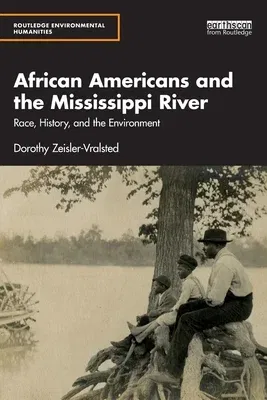Dorothy Zeisler-Vralsted
(Author)African Americans and the Mississippi River: Race, History, and the EnvironmentPaperback, 30 September 2022

Qty
1
Turbo
Ships in 2 - 3 days
Only 2 left
Free Delivery
Cash on Delivery
15 Days
Free Returns
Secure Checkout

Part of Series
Routledge Environmental Humanities
Print Length
194 pages
Language
English
Publisher
Routledge
Date Published
30 Sep 2022
ISBN-10
1138671339
ISBN-13
9781138671331
Description
Product Details
Author:
Book Format:
Paperback
Country of Origin:
US
Date Published:
30 September 2022
Dimensions:
23.39 x
15.6 x
1.12 cm
ISBN-10:
1138671339
ISBN-13:
9781138671331
Language:
English
Location:
Oxford
Pages:
194
Publisher:
Weight:
299.37 gm